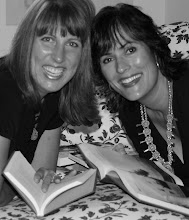 I was reading a magazine the other day on a flight to California. One of the contributing writers, Michael Cunningham, Winner of the Pulitzer Prize and PEN/Faulkner Award, wrote,
I was reading a magazine the other day on a flight to California. One of the contributing writers, Michael Cunningham, Winner of the Pulitzer Prize and PEN/Faulkner Award, wrote,"Telling a good story is always hard - - it's a funny combination of creativity and puzzle solving."
Later, he adds that the one fundamental principle that guides his writing is that, "You can't bore people - - ever. I'm always aware that I'm writing for someone at least as smart as I am, who is busy and has a job, and a mate, and a whole life going on. You have to give them something you believe is worth their time."
The Word Girls heartily agree with Cunningham. So, in a nutshell:
1. Be creative when storytelling. Approach it like you do a puzzle.
2. Never bore your reader.
3. Write about something you believe in.











